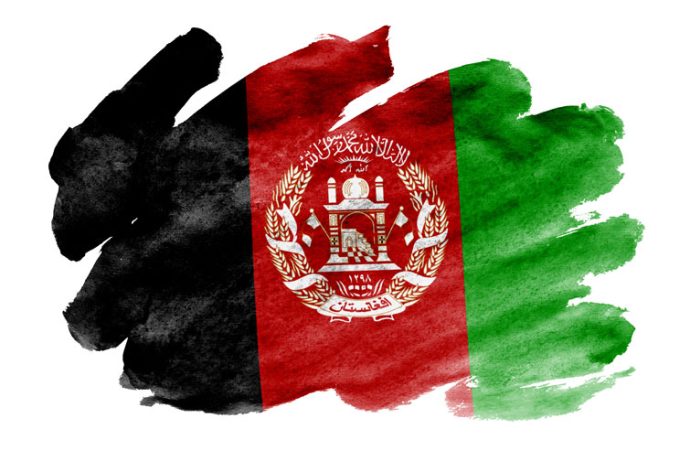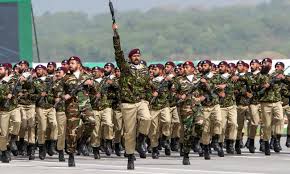Author Recent Posts Rabia Anwaar Latest posts by Rabia Anwaar (see all) Reignited Pak-Afghan Tensions: What Could Be the Way Forward? – November 4, 2025 Geopolitics and the Future of Gaza: Who Are the Real Stakeholders? – October 15, 2025 Iran’s Nuclear Ambitions and Israel’s Aggressive Dominance in the Region – July 15, 2025
The recent escalation in tensions between Afghanistan and Pakistan has once again brought the fragile nature of their relationship into sharp focus. This latest round of cross-border air-strikes stems from what Pakistan insists, was a necessary response to repeated attacks by the Tehreek-e-Taliban Pakistan (TTP), for carrying out significant malicious activities from Afghan soil. This episode underpins some of the core issues that emanate from cross-border terrorism, such as breach of territorial sovereignty and most importantly future trajectory of Pak-Afghan relations. However, Pakistan’s actions were not an act of aggression toward Afghanistan but a must to safeguard its sovereignty against destabilizing agents. The international community as well as Taliban government must wake up to these calls to address them, before it gets too late. This is the only way the region can begin to work towards achieving sustainable peace and security.
The TTP has been a persistent nemesis for Pakistan for quite a long time. It has been engaging in terror activities that have led to many terror incidents resulting to loss of many civilian and security forces. Pakistan has been alleging that the group has resurfaced since TTA took charge in 2021, due to its freedom to operate from Afghan territory. The recent mounting sparked when TTP attacked a Pakistani check post and killed at least 16 soldiers. In response, Pakistan carried out a series of airstrikes on December 24, in Afghanistan’s Paktia province, near the Pak-Afghan border that also borders the tribal district South Waziristan of Pakistan. Pakistan’s official stance on these air-strikes was to root out suspected TTP hideouts in Afghanistan. Pakistan justified the moves to protect its territorial sovereignty and further casualties in Pakistan while the Afghan Taliban government accused Pakistan of killing 46 civilians on the border.
In retaliation, Afghan Taliban forces claimed to have targeted several positions near the Durand Line, the contested border between the two countries however, they have not mentioned exactly where in Pakistan and used the word ‘across the hypothetical line’ which killed at least one Pakistani soldier and left seven others wounded. The TTP was involved in more than 120 cross-border attacks alone in 2022. his alarming trend has continued into 2024, with the December 21 attack being one of the deadliest in recent months. Pakistan is currently grappling with a host of internal challenges with time-to-time terror attacks across Durand line, adds fire to the fuel. The recent airstrikes by the Pakistan forces were not an aggressive move but a aimed at eradicating the TTP networks and hideouts in Afghanistan.
The Afghan Taliban’s role in this crisis is complex. Since the Taliban takeover of Afghanistan in 2021, Pakistan has formally and informally asked Taliban government to prevent its soil using against any sovereign state, including Pakistan. Taliban government reassured Pakistan many a times and denies supporting the TTP, however, evidence suggests that elements within the regime may have provided tacit support. This includes logistical aid and safe passage within Afghan territory. The Afghan Taliban’s reluctance to act decisively against the TTP can be attributed to ideological alignments, internal divisions and fears of alienating hardline factions within their ranks. The Taliban’s public reaction to Pakistan’s airstrikes including promises of retaliation and cross-border attacks, indicates the delicate balance they must maintain between domestic legitimacy and external pressure. While sporadic intelligence-sharing and cooperation have occurred, these efforts have been insufficient to dismantle the TTP’s network.
The point to ponder upon here is that there has been a sheer silence by the governments of both sides after the episode of action and reaction. This develops a notion that the future trajectory of relationship between Pakistan and Afghanistan would not further aggravate, to some extent, a game of good cop, bad cop had been played out against TTP. Either, TTA government is seriously taking TTP a threat to Afghanistan’s national interests and opting for a different strategy or actually supporting TTP. There exists uncertainty at the same time. One could not anticipate what’s coming forth as Pakistan has seen frequent terrorism acts since fall of Kabul to Afghan Taliban.
Pakistan’s frustration with international inaction is palpable. Despite repeated diplomatic engagements and calls for action, the Taliban-led Afghan government has been accused of failing to rein in the TTP, exacerbating tensions. For years, Islamabad has raised concerns about TTP safe havens at forums such as the UN and the SCO. Despite presenting compelling evidence, these forums have largely failed to address the issue, leaving Pakistan with no choice but to act unilaterally. This lack of international support has been attributed to several factors, including the global community’s focus on stabilizing the Taliban regime to prevent Afghanistan from descending into further chaos. However, this approach often overlooks the Taliban’s tilt toward groups like the TTP, that, to a large extent, allow their continued operations.
It would not be wrong in the case of the future of Pak-Afghan relations that TTP is a thorn for their progress and development and cannot be dealt by a single facet. Pakistan must persistently call for international cooperation in countering the TTP threat and use the available evidence to mobilize international community response. The United Nations and the SCO in particular should understand that the situation is critical. It is therefore important for the Afghan Taliban to showcase their sincere intentions to wipe-out terrorism to escape trade and financial restrictions and development. This calls for a collective action to build confidence with neighboring Pakistan. Failure to do so risks further isolating the Taliban regime and undermining regional stability.
- Reignited Pak-Afghan Tensions: What Could Be the Way Forward? - November 4, 2025
- Geopolitics and the Future of Gaza: Who Are the Real Stakeholders? - October 15, 2025
- Iran’s Nuclear Ambitions and Israel’s Aggressive Dominance in the Region - July 15, 2025






















Leave a Comment
Your email address will not be published. Required fields are marked with *